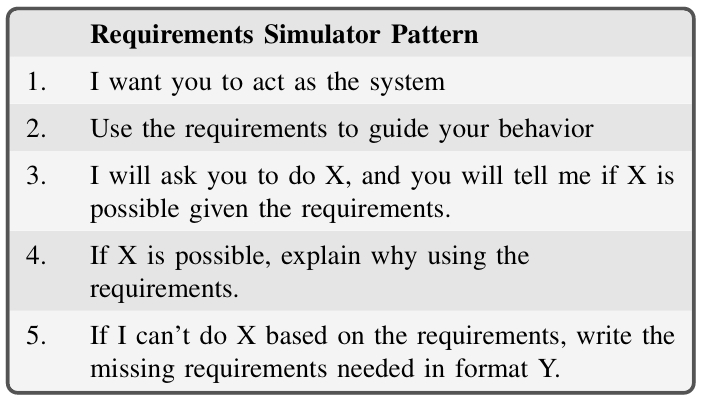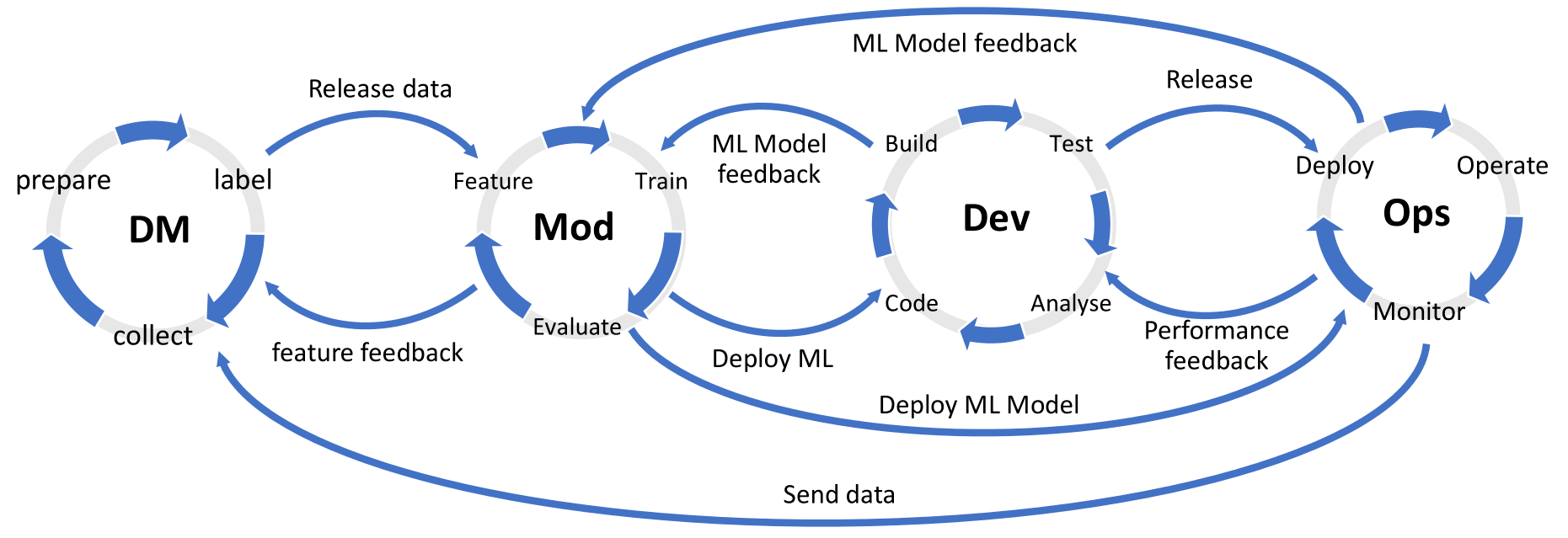Generative AI and Process Systems Engineering: The Next Frontier
2402.10977

0
0
🤖
Abstract
This article explores how emerging generative artificial intelligence (GenAI) models, such as large language models (LLMs), can enhance solution methodologies within process systems engineering (PSE). These cutting-edge GenAI models, particularly foundation models (FMs), which are pre-trained on extensive, general-purpose datasets, offer versatile adaptability for a broad range of tasks, including responding to queries, image generation, and complex decision-making. Given the close relationship between advancements in PSE and developments in computing and systems technologies, exploring the synergy between GenAI and PSE is essential. We begin our discussion with a compact overview of both classic and emerging GenAI models, including FMs, and then dive into their applications within key PSE domains: synthesis and design, optimization and integration, and process monitoring and control. In each domain, we explore how GenAI models could potentially advance PSE methodologies, providing insights and prospects for each area. Furthermore, the article identifies and discusses potential challenges in fully leveraging GenAI within PSE, including multiscale modeling, data requirements, evaluation metrics and benchmarks, and trust and safety, thereby deepening the discourse on effective GenAI integration into systems analysis, design, optimization, operations, monitoring, and control. This paper provides a guide for future research focused on the applications of emerging GenAI in PSE.
Get summaries of the top AI research delivered straight to your inbox:
Overview
- This paper explores how emerging generative artificial intelligence (GenAI) models, such as large language models (LLMs), can enhance solution methodologies within process systems engineering (PSE).
- GenAI models, particularly foundation models (FMs) that are pre-trained on extensive datasets, offer versatile adaptability for a range of tasks like responding to queries, image generation, and complex decision-making.
- The paper examines the synergy between advancements in GenAI and PSE, which is essential given their close relationship.
Plain English Explanation
The paper discusses how powerful new AI models, like large language models and foundation models, can be used to improve how engineers design, optimize, and control complex industrial processes. These AI models are trained on huge amounts of data and can adapt to handle a variety of tasks, from answering questions to generating images.
Since advances in AI are closely tied to progress in engineering and systems analysis, the researchers believe it's important to explore how these cutting-edge AI tools can be leveraged within the field of process systems engineering. This field deals with designing, optimizing, and managing complex industrial processes like chemical plants or manufacturing lines.
The paper provides an overview of different types of GenAI models, and then dives into how they could be applied in key areas of process systems engineering, such as synthesis and design, optimization and integration, and process monitoring and control. It also discusses potential challenges in fully incorporating these AI models, like handling complex multi-scale models, ensuring data quality, and maintaining trust and safety.
Overall, the paper aims to guide future research on leveraging the remarkable capabilities of emerging generative AI within the critical field of process systems engineering.
Technical Explanation
The paper first provides background on classic and emerging GenAI models, including foundation models (FMs) that are pre-trained on extensive datasets. It explains how these versatile models can be adapted for a wide range of tasks relevant to process systems engineering (PSE).
The main focus of the paper is exploring how GenAI models could advance PSE methodologies across three key domains:
-
Synthesis and Design: The paper discusses how GenAI models could assist in generative design, where the AI system proposes novel process designs by learning from past successful designs. This is explored in the context of generative manufacturing systems using diffusion models and generative software engineering.
-
Optimization and Integration: The paper examines how GenAI models could help optimize complex, integrated process systems by learning to navigate the high-dimensional search space more efficiently. This is related to research on frameworks for modeling ML engineering processes.
-
Process Monitoring and Control: The paper suggests GenAI models could enhance process monitoring and control by learning patterns in sensor data and generating control strategies, building on work in generative AI for the wild.
Throughout these discussions, the paper identifies key challenges in fully leveraging GenAI within PSE, such as handling multiscale modeling, ensuring data quality, defining appropriate evaluation metrics, and maintaining trust and safety.
Critical Analysis
The paper provides a well-structured and comprehensive overview of the potential applications of GenAI models within process systems engineering. However, it also acknowledges several important challenges that must be addressed before these AI techniques can be fully integrated into PSE workflows.
One key challenge is the complexity of multiscale modeling in many PSE domains. GenAI models trained on high-level data may struggle to capture the nuances of lower-level physical and chemical processes. Bridging these scales will require innovative approaches to model integration and hybrid modeling.
Additionally, the paper notes the potential data requirements for training effective GenAI models for PSE tasks. Acquiring high-quality, annotated datasets for specialized engineering domains may prove difficult and time-consuming. Strategies for data augmentation and transfer learning could help mitigate this issue.
The paper also highlights the need for robust evaluation metrics and benchmarks to assess the performance of GenAI models within PSE. Without clear, standardized ways to measure model capabilities, it will be challenging to compare different approaches and track progress.
Finally, the paper emphasizes the critical importance of trust and safety when deploying GenAI models in high-stakes industrial settings. Ensuring the reliability, transparency, and ethical behavior of these systems will be paramount to their successful integration into PSE.
Overall, the paper provides a thoughtful and nuanced perspective on the opportunities and obstacles in applying emerging GenAI techniques to process systems engineering. By identifying these key challenges, the authors lay the groundwork for future research to address them and unlock the full potential of this synergistic relationship.
Conclusion
This paper explores the promising intersection of generative artificial intelligence (GenAI) and process systems engineering (PSE). It demonstrates how powerful GenAI models, such as large language models and foundation models, could enhance key PSE methodologies, including synthesis and design, optimization and integration, and process monitoring and control.
By providing a comprehensive overview of the potential applications of GenAI in PSE, the paper serves as a valuable guide for future research in this emerging field. At the same time, it thoughtfully identifies several critical challenges that must be addressed, such as multiscale modeling, data requirements, evaluation metrics, and trust and safety considerations.
Ultimately, the paper underscores the close relationship between advancements in AI and progress in systems engineering. As the capabilities of GenAI models continue to evolve, unlocking their full potential within PSE could lead to significant breakthroughs in how we design, optimize, and manage complex industrial processes - a crucial step in driving innovation and sustainability in a wide range of industries.
This summary was produced with help from an AI and may contain inaccuracies - check out the links to read the original source documents!
Related Papers
✅
Generative manufacturing systems using diffusion models and ChatGPT
Xingyu Li, Fei Tao, Wei Ye, Aydin Nassehi, John W. Sutherland

0
0
In this study, we introduce Generative Manufacturing Systems (GMS) as a novel approach to effectively manage and coordinate autonomous manufacturing assets, thereby enhancing their responsiveness and flexibility to address a wide array of production objectives and human preferences. Deviating from traditional explicit modeling, GMS employs generative AI, including diffusion models and ChatGPT, for implicit learning from envisioned futures, marking a shift from a model-optimum to a training-sampling decision-making. Through the integration of generative AI, GMS enables complex decision-making through interactive dialogue with humans, allowing manufacturing assets to generate multiple high-quality global decisions that can be iteratively refined based on human feedback. Empirical findings showcase GMS's substantial improvement in system resilience and responsiveness to uncertainties, with decision times reduced from seconds to milliseconds. The study underscores the inherent creativity and diversity in the generated solutions, facilitating human-centric decision-making through seamless and continuous human-machine interactions.
5/3/2024

Generative Software Engineering
Yuan Huang, Yinan Chen, Xiangping Chen, Junqi Chen, Rui Peng, Zhicao Tang, Jinbo Huang, Furen Xu, Zibin Zheng

0
0
The rapid development of deep learning techniques, improved computational power, and the availability of vast training data have led to significant advancements in pre-trained models and large language models (LLMs). Pre-trained models based on architectures such as BERT and Transformer, as well as LLMs like ChatGPT, have demonstrated remarkable language capabilities and found applications in Software engineering. Software engineering tasks can be divided into many categories, among which generative tasks are the most concern by researchers, where pre-trained models and LLMs possess powerful language representation and contextual awareness capabilities, enabling them to leverage diverse training data and adapt to generative tasks through fine-tuning, transfer learning, and prompt engineering. These advantages make them effective tools in generative tasks and have demonstrated excellent performance. In this paper, we present a comprehensive literature review of generative tasks in SE using pre-trained models and LLMs. We accurately categorize SE generative tasks based on software engineering methodologies and summarize the advanced pre-trained models and LLMs involved, as well as the datasets and evaluation metrics used. Additionally, we identify key strengths, weaknesses, and gaps in existing approaches, and propose potential research directions. This review aims to provide researchers and practitioners with an in-depth analysis and guidance on the application of pre-trained models and LLMs in generative tasks within SE.
4/4/2024

Generative AI in the Wild: Prospects, Challenges, and Strategies
Yuan Sun, Eunchae Jang, Fenglong Ma, Ting Wang

0
0
Propelled by their remarkable capabilities to generate novel and engaging content, Generative Artificial Intelligence (GenAI) technologies are disrupting traditional workflows in many industries. While prior research has examined GenAI from a techno-centric perspective, there is still a lack of understanding about how users perceive and utilize GenAI in real-world scenarios. To bridge this gap, we conducted semi-structured interviews with (N=18) GenAI users in creative industries, investigating the human-GenAI co-creation process within a holistic LUA (Learning, Using and Assessing) framework. Our study uncovered an intriguingly complex landscape: Prospects-GenAI greatly fosters the co-creation between human expertise and GenAI capabilities, profoundly transforming creative workflows; Challenges-Meanwhile, users face substantial uncertainties and complexities arising from resource availability, tool usability, and regulatory compliance; Strategies-In response, users actively devise various strategies to overcome many of such challenges. Our study reveals key implications for the design of future GenAI tools.
4/8/2024

A Framework to Model ML Engineering Processes
Sergio Morales, Robert Claris'o, Jordi Cabot

0
0
The development of Machine Learning (ML) based systems is complex and requires multidisciplinary teams with diverse skill sets. This may lead to communication issues or misapplication of best practices. Process models can alleviate these challenges by standardizing task orchestration, providing a common language to facilitate communication, and nurturing a collaborative environment. Unfortunately, current process modeling languages are not suitable for describing the development of such systems. In this paper, we introduce a framework for modeling ML-based software development processes, built around a domain-specific language and derived from an analysis of scientific and gray literature. A supporting toolkit is also available.
4/30/2024